
Latest Coronavirus Disease COVID 19 News and Research
Steroids and immunotherapy improve outcomes in children exposed to COVID-19
Treatment with antibodies purified from donated blood - immune globulin therapy - and steroids restored heart function in the majority of children with COVID-related multi-system inflammatory syndrome, according to new research published yesterday in Circulation, the flagship journal of the American Heart Association.
NEJM Group releases a series of five Covid-19 interactive cases
NEJM Group today released Covid-19 Rx: Treatment Simulations, a series of five Covid-19 interactive cases that range from a mild self-limited flu-like illness to life-threatening multi-organ failure.
X-ray experiments demonstrate a new way to block the entry of SARS-CoV-2
As scientists across the globe race to develop a vaccine against SARS-CoV-2, the coronavirus that causes COVID-19, an international team led by Davide Corti at Vir Biotechnology and David Veesler at the University of Washington has been working around the clock on a complementary approach - identifying neutralizing antibodies that could be used as a preventative treatment or as a post-exposure therapy.
SWOG scientists to deliver online presentations at ASCO20 Virtual Scientific Program
Researchers from SWOG, a cancer clinical trials group funded by the National Cancer Institute (NCI), part of the National Institutes of Health, will make 31 presentations as part of the ASCO20 Virtual Scientific Program, the online annual meeting of the American Society of Clinical Oncology (ASCO), which runs May 29-31.
‘Last responders’ seek to expand postmortem COVID testing in unexplained deaths
Examining dead bodies and probing for a cause of death is rarely seen as a heroic or glamorous job. Rather, as the coronavirus pandemic has unfolded, all eyes have been on the medical workers and public health disease detectives fighting on the front lines - and sometimes giving their lives — to bring the novel coronavirus under control.
Fewer traffic collisions during shutdown means longer waits for organ donations
On Day Two of the San Francisco Bay Area's stay-at-home orders in March, Nohemi Jimenez got into her car in San Pablo, California, waved goodbye to her 3-year-old son and drove to her regular Wednesday dialysis appointment.
Researchers are developing a diagnostic test that predicts the advanced stages of COVID-19 patients
A research team from the University of Valencia, led by Professor Juan Saus from the Department of Biochemistry and Molecular Biology, is developing a project to provide the healthcare system with a diagnostic test that anticipates the entry into advanced stages of patients with COVID-19 and a scalable oral treatment for the disease.
Mount Sinai researchers are first to use AI model to analyze COVID-19 patients
Mount Sinai researchers are the first in the country to use artificial intelligence (AI) combined with imaging, and clinical data to analyze patients with coronavirus disease (COVID-19).
COVID-19 is more deadly than flu, concludes new study
Is COVID-19 more deadly than the flu? It's a lot more deadly, concludes a new study by the University of Washington published May 7 in the journal Health Affairs.
Common cytokine profile in ARDS, severe COVID-19 and sepsis
Many lives have been lost to the severe pneumonic disease COVID-19 caused by the severe acute respiratory syndrome coronavirus 2 (SARS-CoV-2), during the ongoing pandemic. The reason for the critical lung injury that results in a fatal outcome in a significant minority of patients has been supposed to be the dramatic oversecretion of pro-inflammatory cytokines and chemokines triggered by the virus.
New animal model for COVID-19
As the severe acute respiratory syndrome coronavirus 2 (SARS-CoV-2) continues to ravage the world, scientists are frantically searching for a vaccine or new drug that will effectively counter the lethal effects of the virus that leads to COVID-19 disease.
New UV disinfection technology is effective for deactivating SARS-CoV-2 on surfaces
Surfaces contaminated with SARS-CoV-2, the virus that causes COVID-19, pose a grave threat to the safety of healthcare workers, patients, frontline responders, military service members, cruise line passengers, hotel guests and people everywhere.
Study shows how RNA editing affects the replication of COVID-19 virus
Two human deaminase enzymes edit the RNA of the SARS-CoV-2 virus when it enters a patient's body, with implications for the evolution of the virus and the spread of the infection, according to a new study.
Three FDA-approved drugs can block the replication of COVID-19 virus
Three drugs that are already approved by the Food and Drug Administration (FDA) or other international agencies can block the production of the novel coronavirus that causes COVID-19 in human cells, according to computational and pharmaceutical studies performed by UT Southwestern scientists.
Study: Health impacts of COVID-19 may go far beyond the official death counts
According to a study by Charité - Universitätsmedizin Berlin, the northern Italian city of Nembro recorded more deaths during March 2020 than between January and December 2019.
Spraying disinfectants on streets can be harmful, WHO warns
The interim guidance released by the WHO aims to help health authorities formulate and implement policies on the disinfection of environmental surfaces during the coronavirus disease (COVID-19) pandemic.
Countries back Australia's plan to investigate the coronavirus pandemic
Amid the coronavirus disease (COVID-19) pandemic, a coalition of 116 countries backs up a joint Australian and European Union plan to launch an independent inquiry into the coronavirus outbreak.
Most Australians do not understand difference between bacterial and viral infection
Public awareness matters amid the coronavirus disease (COVID-19) pandemic; however, a new study shows that more than 92 percent of the Australian population cannot differentiate between a bacterial and viral infection.
Coronavirus pandemic may spark mental health crisis, U.N. warns
A mental health crisis is looming as millions of people are affected by deaths, disease, poverty, and isolation. All of these factors could cause severe psychological distress. The U.N. warns that due to the stress faced by people in physical isolation, a mental health crisis is approaching.
Human immune repertoire may not commonly produce cross-neutralizing antibodies to coronaviruses
Patients infected with either severe acute respiratory syndrome coronavirus (SARS-CoV) or SARS-CoV-2 produce antibodies that bind to the other coronavirus, but the cross-reactive antibodies are not cross protective, at least in cell-culture experiments, researchers report May 17 in the journal Cell Reports.
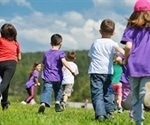
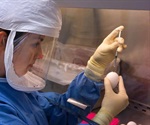
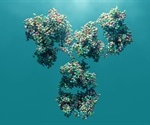
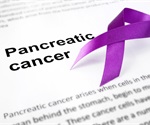
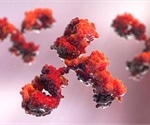

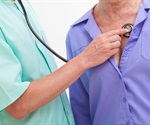

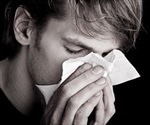


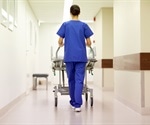
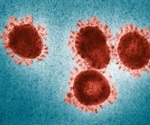
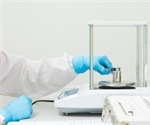
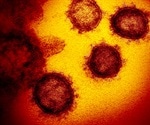




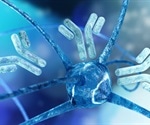
































No hay comentarios:
Publicar un comentario